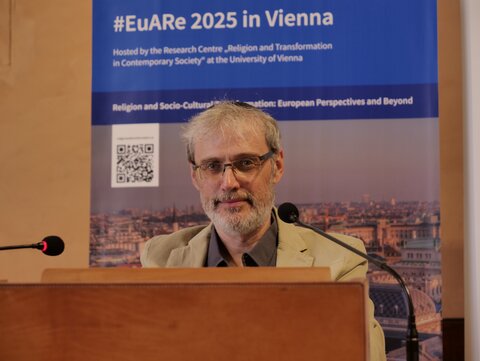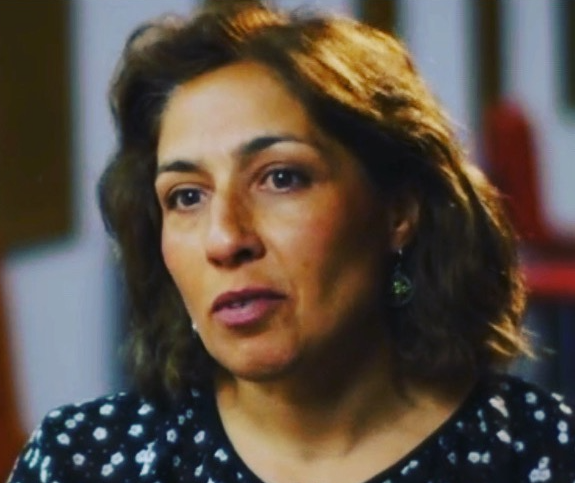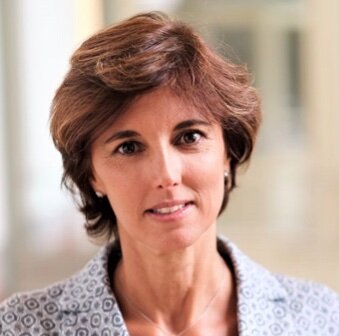Alexander Kulik


Alexander Kulik studied at the Moscow State University, earned his Ph.D. from the Hebrew University of Jerusalem and conducted post-doctoral research at Harvard University. He currently serves as Professor (previously also Chair) of the Department of Russian and Slavic Studies and Chair of the Academic Committee of the International Center for University Teaching of Jewish Civilization at The Hebrew University of Jerusalem. He holds the Tamara and Savely Grinberg Chair of Russian Studies and is a Member of the International Committee of Slavists (UNESCO). His research focuses on the cross-cultural transmission of texts and ideas.
A. Kulik has held visiting positions at Harvard University, Moscow State University, St. Petersburg State University, University College London, Stanford University, University of Oxford, Université de Lausanne, Freie Universität Berlin, Università Ca' Foscari Venezia, and National Research University Higher School of Economics, Moscow. In 2010, he was awarded the ERC grant. He also founded and headed the Brill book series Studia Judaeoslavica.
The project
Title: Jews in Ukraine: A Transimperial History
"During most of its history Ukraine was divided between several large political entities (“empires”). Nonetheless, at least from the Union of Lublin in 1569 and especially after the formation of a modern Ukrainian national identity by the late 18th century, the sense of a “transimperial” Ukrainian ethno-cultural unity also emerged. Ukraine is not unique in this respect: the case of the Jewish diaspora provides a striking example. Jewish communities' long experiences of separation by changing political borders made the Jews into a transimperial nation par excellence. The Jewish presence in the territory of Ukraine is the oldest in Eastern Europe, going back to the Jews of Greek colonies in the Northern Pontic area in the first centuries CE and documentarily attested in Kyiv as early as the 10th century. In the early modern age Ukraine became the homeland of the largest Jewish community in the world. In spite of this unique significance of Ukraine in Jewish history, in scholarly research Ukrainian Jewry has traditionally been treated as but an integral part of either Polish or Russian Jewry. However, since the independence of Ukraine in 1991, and especially after the beginning of the conflict with Russia in 2014 and its culmination in 2022, the notion of the very existence of a separate identity of Ukrainian Jewry has appeared in historical research. Nonetheless, this concept still remains underdeveloped. The main objective of the proposed project is to provide a solid documentary basis for the study of the transimperial history of Ukrainian Jewry, as well as analysis and discussion of the historical background and significance of these documents. We propose to assemble for the first time a representative selection of documents (legal, economic, literary, etc.) from different cultural backgrounds and written in different languages, covering all aspects of the Jewish experience in Ukraine from the earliest references to Jewish communities in the first centuries CE to the Third Partition of Poland in 1795."
Hosting institution: Sorbonne Université
Selective Bibliography
- Biblical Pseudepigrapha in Slavonic Tradition (Oxford: Oxford University Press, 2016; with S. Minov)
- Guide to Early Jewish Texts and Traditions in Christian Transmission (Oxford-New York: Oxford University Press; editor-in-chief; with G. Boccaccini, L. DiTommaso, D. Hamidovic, M. Stone, 2019).
- Jews in Old Rus’: A Documentary History (Cambridge, MA: Harvard University Press, forthcoming)
- “Gilayon and ‘Apocalypse’: Reconsidering an Early Jewish Concept and Genre.” Harvard Theological Review 116.2 (2023), pp. 190–227.
- “Counting on God’s Name: The Numerology of Nomina Sacra.” Harvard Theological Review (forthcoming).

Alexander Kulik personal page

Events

Nancy Jones

Arezou Azad

Carla Rita Palmerino



